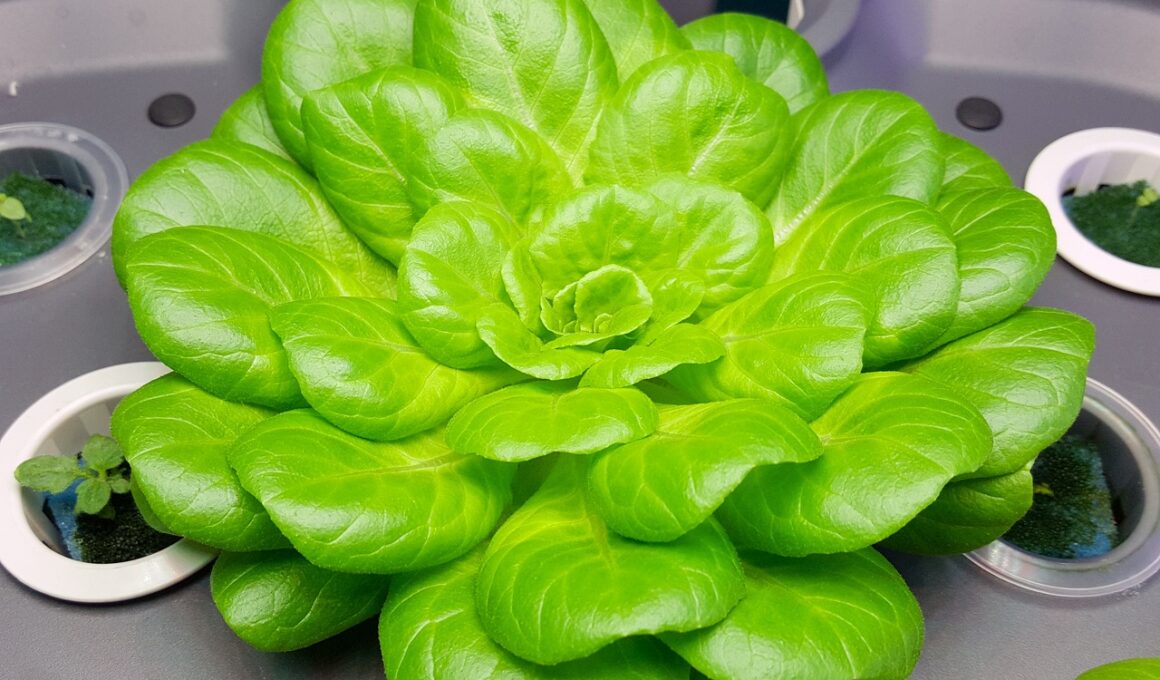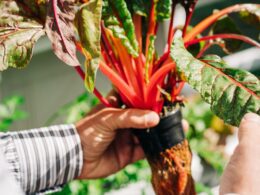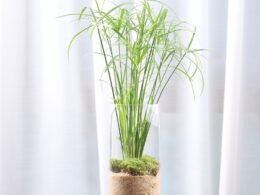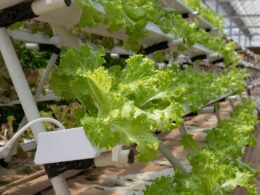Are you considering using pond water for your hydroponics system? It can be a cost-effective and sustainable option, but it’s important to understand the potential risks and benefits before diving in.
In this article, we will explore whether pond water is suitable for hydroponics, how to evaluate the quality of pond water, and how to safely treat it for use in your system.
Using pond water for hydroponics has its advantages, such as being a readily available and inexpensive source of water. However, it also comes with some risks, such as high levels of algae, bacteria, and other contaminants that can affect plant growth and health.
Before using pond water, it’s crucial to assess its quality and take appropriate steps to ensure it’s safe for your plants. With the right knowledge and precautions, you can successfully use pond water for hydroponics and enjoy a bountiful harvest.
Understanding the Benefits and Risks of Using Pond Water for Hydroponics
Exploring the advantages and potential hazards of incorporating natural aquatic elements into your hydroponic system can help you make an informed decision about using pond water. Benefits include a natural source of nutrients and microorganisms that can enhance plant growth. Additionally, pond water is typically free and readily available, reducing the cost of purchasing water for hydroponic use.
However, there are also risks associated with using pond water. The environmental impact of introducing foreign organisms into your hydroponic system can be detrimental to both the plants and the pond ecosystem. Additionally, pond water may contain harmful bacteria and pathogens that can cause plant diseases.
To mitigate these risks, it’s important to properly filter and treat pond water before using it in your hydroponic system. This can include using UV filters, chlorination, and other purification methods to ensure the water is safe and free from harmful organisms.
Overall, while using pond water for hydroponics can have its benefits, it’s important to carefully consider the potential risks and take necessary precautions to ensure a safe and healthy growing environment for your plants.
Evaluating the Quality of Pond Water
Assessing the purity and nutrient levels of pond water is crucial in determining its feasibility as a potential solution for sustaining a hydroponic system. Testing the water quality is essential to avoid potential problems such as nutrient deficiencies or toxic build-ups that may harm the plants.
It’s important to evaluate the following factors before using pond water for hydroponics:
-
pH level: Pond water can be acidic or alkaline, which can affect plant growth. The ideal pH range for hydroponics is 5.5-6.5.
-
Nutrient levels: Testing for essential nutrients such as nitrogen, phosphorus, and potassium is vital. The nutrient levels should be within the optimal range for hydroponic plants.
-
Contaminants: Pond water can contain harmful contaminants such as heavy metals, pesticides, and pathogens. Testing for these contaminants is crucial to ensure plant health and safety.
-
Temperature: The temperature of the pond water can affect plant growth and nutrient availability. The optimal temperature range for hydroponics is between 18-23°C.
-
Dissolved oxygen levels: Pond water can have low oxygen levels, which can suffocate the plant roots. Adequate oxygen levels are necessary to prevent root rot and promote healthy plant growth.
Environmental factors such as weather patterns and surrounding land use can also affect pond water quality. It’s important to test the water regularly and monitor any changes in the environment.
Testing methods such as water quality kits or laboratory analysis can help determine the suitability of pond water for hydroponics. Overall, evaluating the quality of pond water is crucial for the success of hydroponics.
By testing for essential factors such as pH, nutrient levels, contaminants, temperature, and dissolved oxygen levels, you can ensure optimal plant growth and prevent potential problems. Regular testing and monitoring will help maintain healthy water and plant systems.
Treating Pond Water for Hydroponics
Treating pond water for hydroponics involves adjusting its pH and nutrient levels, removing contaminants, and ensuring adequate oxygen levels for healthy plant growth. Before using pond water in a hydroponic system, it’s important to test its quality for pollutants such as heavy metals, pesticides, and pathogens.
Once you’ve confirmed that the pond water is safe for use, you can begin the treatment process. Pond water filtration is a crucial step in treating pond water for hydroponics. This involves removing any debris, sediment, or organic matter that can clog the hydroponic system and hinder plant growth. You can use a variety of filtration methods such as mechanical, biological, or chemical filtration to achieve this.
Additionally, hydroponic nutrient supplementation can be added to the pond water to provide essential nutrients for plant growth. Nutrient supplementation can include adding fertilizers, minerals, or organic compounds to the water. After filtering and supplementing the pond water, it’s essential to maintain adequate oxygen levels in the hydroponic system.
Plants require oxygen to absorb nutrients and grow healthily. You can maintain oxygen levels in the system by incorporating an air pump or air stone to aerate the water. Regular water changes and testing can also ensure that the pond water remains safe and healthy for hydroponic plant growth.
By treating pond water properly for hydroponics, you can save money and resources while growing healthy and sustainable crops.
What Types of Water Are Safe to Use for Hydroponics?
When it comes to hydroponics, the safety of the water used is crucial. While tap water in hydroponics may seem convenient, it may contain high levels of chlorine and other chemicals harmful to plants. It is recommended to use filtered or distilled water, which guarantees a clean and balanced nutrient solution for optimal growth in hydroponic systems.
Tips for Using Pond Water Safely and Effectively
If you’re using pond water for your hydroponic system, it’s important to monitor the water quality regularly to ensure that the water is safe for your plants. You should also rotate your water sources to avoid any potential buildup of harmful chemicals or bacteria.
By taking these simple steps, you can use pond water safely and effectively in your hydroponic system.
Monitoring water quality
Keep an eye on the quality of your H2O in order to ensure successful hydroponic growth. Testing methods play an important role in ensuring the water is safe for plants to grow in. You can use various testing kits to check for pH levels, nutrient levels, and other environmental factors that can affect plant growth. It’s important to keep track of these levels and adjust them accordingly to ensure optimal growth conditions.
Environmental factors can also affect the quality of pond water. For instance, if there’s too much algae growth or debris in the pond, it can lead to poor water quality. Additionally, if there’s any runoff from fertilizers or pesticides in the surrounding areas, it can also contaminate the water.
Regular testing and monitoring can help you catch any issues early on and take necessary steps to correct them. By doing so, you can ensure that your hydroponic plants are getting the best possible water quality for healthy growth.
Rotating water sources
Now that you know how to monitor the water quality, it’s time to talk about rotating water sources. This is an important step in ensuring the health and growth of your plants.
Using the same water source continuously can lead to a buildup of harmful bacteria and algae, which can affect the quality of your plants. Therefore, it’s essential to alternate between different water sources to maintain a healthy hydroponic system.
One way to rotate water sources is by using pond water. However, before using it, it’s crucial to ensure that the water is filtered and supplemented with nutrients. Pond water can contain harmful bacteria, parasites, and pollutants that can damage your plants.
Therefore, it’s essential to use a water filtration system to remove any impurities from the water. Additionally, supplementing the pond water with nutrients will ensure that your plants have the necessary minerals and vitamins to grow healthy and strong. With the right filtration and nutrient supplementation, pond water can be a great source of water for your hydroponic system.
Alternatives to Pond Water for Hydroponics
If you’re looking for alternatives to pond water for your hydroponics, there are other sources of water that you can use. These include tap water, well water, and rainwater. You can also opt for synthetic nutrient solutions instead of relying on natural sources of nutrients.
Adjusting the paragraph structure in this way allows each complete thought to stand on its own, making the information easier to digest. Additionally, using contractions adds a more casual and conversational tone to the text.
Other sources of water
There are alternative options for sourcing water that can be utilized in hydroponics systems. If you don’t have access to pond water or are hesitant to use it, here are some other sources of water you can consider:
-
Rainwater collection: Collecting rainwater can be a great option for hydroponic systems, as it’s free and naturally filtered. However, it’s important to ensure that the rainwater isn’t contaminated by pollutants from the air or roof materials.
-
Municipal water supply: If you live in an area with a reliable and safe municipal water supply, this can also be used in hydroponics systems. Just be aware that municipal water may contain chlorine or other chemicals that need to be removed before use.
-
Well water: If you have a well on your property, the water can also be used in hydroponics systems. However, it’s important to have your well water tested for potential contaminants and mineral levels that can affect plant growth.
-
Bottled water: While not the most cost-effective option, using bottled water can ensure that your plants receive clean and purified water.
-
Reverse osmosis water: Reverse osmosis systems can remove contaminants and minerals from water, making it ideal for hydroponics. However, these systems can be expensive and require regular maintenance.
No matter which source of water you choose, it’s important to regularly test and monitor the water quality to ensure the health and growth of your plants. By taking these precautions, you can safely and effectively use alternative sources of water in your hydroponics system.
Synthetic nutrient solutions
To get the best results from your plants, it’s important to understand how synthetic nutrient solutions can be used in your system. These solutions are made up of various minerals and nutrients that your plants need to grow, including nitrogen, phosphorus, and potassium.
They are often used in hydroponics because they’re easy to use and provide consistent results. While some people prefer to make their own DIY nutrient solutions or use organic hydroponics methods, synthetic nutrient solutions are a reliable option for those who want to maximize their plant growth.
Just be sure to follow the instructions carefully and monitor your plants for any signs of nutrient deficiencies or excesses. With the right balance of nutrients, your plants will thrive and produce a bountiful harvest.
Frequently Asked Questions
What types of plants are best suited for hydroponics using pond water?
When it comes to hydroponics using pond water, it’s important to choose plants that have low nutrient requirements. The best plants for this purpose include lettuce, herbs, and a variety of leafy greens.
However, it’s important to note that pond water filtration is crucial in order to ensure that the water is safe for your plants to grow in. Without proper filtration, pond water can contain harmful bacteria and parasites that can harm your plants and even pose a risk to your health.
Ultimately, if you’re considering using pond water for hydroponics, it’s important to invest in a high-quality filtration system to ensure that your plants thrive in a safe and healthy environment.
Can I use pond water directly in my hydroponic system without any treatment?
Using pond water directly in your hydroponic system without any treatment isn’t recommended. Pond water can contain a wide range of contaminants, such as algae, bacteria, and minerals, that can harm your plants and affect their growth.
To use pond water for hydroponics, it’s essential to filter and treat the water properly to remove any harmful substances. You can use pond water filtration systems or consider alternative water sources, such as rainwater harvesting or reverse osmosis.
By taking the right steps to ensure the quality of your water, you can provide a safe and healthy environment for your plants to thrive in.
How often should I test the quality of my pond water before using it for hydroponics?
To ensure the safety of your hydroponic system, it’s important to test the quality of your pond water before using it. Frequency of testing depends on various factors, such as the size of your pond and the type of plants you’re growing. Generally, it’s recommended to test your pond water at least once a month.
Additionally, it’s important to use water treatment methods to ensure the purity of your pond water. Some effective water treatment methods include adding beneficial bacteria, using a UV sterilizer, and adding oxygen to the water.
By regularly testing the quality of your pond water and utilizing water treatment methods, you can ensure the success and safety of your hydroponic system.
Can using pond water in hydroponics affect the taste or quality of the plants?
If you’re considering using pond water for your hydroponics, it’s important to ensure its safety and nutrient balance. Pond water safety can be affected by various factors, including pollution and the presence of harmful bacteria or chemicals.
It’s crucial to test your pond water regularly to ensure it’s free from harmful substances that could affect your plants’ quality or taste. Additionally, you’ll need to maintain the proper balance of nutrients in your hydroponic system to ensure your plants receive the necessary nutrients for optimal growth.
While using pond water in hydroponics can be a cost-effective option, it’s essential to take the necessary precautions to ensure your plants’ safety and quality.
Are there any legal restrictions or regulations regarding the use of pond water for hydroponics?
When it comes to using pond water for hydroponics, there are some legal implications and environmental impact to consider. Depending on where you live, there may be regulations in place regarding the use of pond water for growing plants. It’s important to check with your local authorities to ensure that you’re in compliance with any laws or restrictions.
Using pond water can have an impact on the environment if not properly managed. It’s important to monitor the quality of the water and ensure that any potential pollutants or contaminants are removed before using it for hydroponics. By being mindful of these factors, you can safely and responsibly use pond water for your hydroponic growing needs.
Conclusion
So, can you use pond water for hydroponics? The answer is yes, but with caution.
While pond water is rich in nutrients and can be a cheaper alternative to tap water, it can also contain harmful microorganisms and pollutants that can harm your plants.
To use pond water safely and effectively, it’s important to evaluate its quality and treat it properly before using it in your hydroponic system. You can also consider using alternatives such as rainwater or filtered tap water.
By taking the necessary precautions, you can enjoy the benefits of using pond water for hydroponics without putting your plants at risk.
Happy growing!









